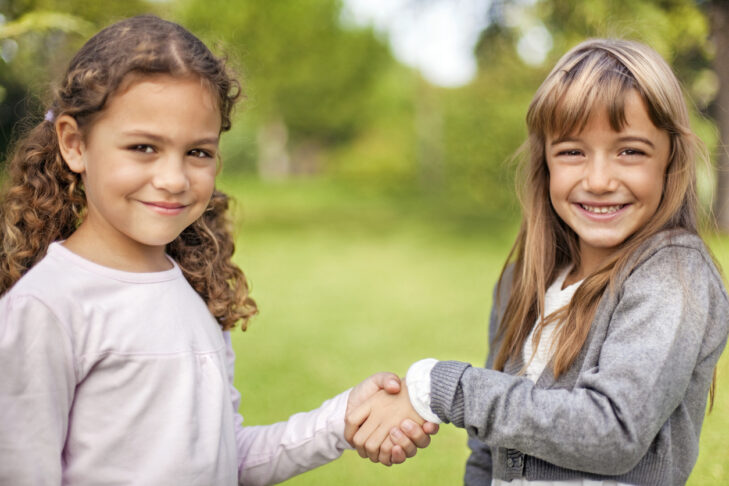In a frenzied world full of injustices perceived and real, Yom Kippur allows us to take a step back and re-evaluate. It’s a chance to make amends and to start anew: to repair brokenness within ourselves, in our relationships and out in the world.
How do we impart something so vast and deep to our kids? My kindergartner suffers about 40 letdowns per day, from someone cutting him in line for ice cream to not sharing a soccer ball. Usually it’s forgotten a minute later. But sometimes it’s not. Rabbi Jillian Cameron from InterfaithFamily/Boston and Rabbi Jen Gubitz from Temple Israel of Boston explain how to turn introspective, fleeting concepts like forgiveness into lasting lessons.
Model forgiveness
Instead of asking your child, “Did you hit your sister? Did you take your brother’s toy?” reframe the interaction so that you’re modeling forgiveness for your kids, suggests Cameron. Think about what you did that might warrant forgiveness, and ask for it, whether it’s playing too much on your iPhone at dinner or snapping too much when the kids are rushing off to school. Kids need to know what it feels like to be on the receiving end of apologies too.
Offer up a timeframe for apologies
Kids are literal, Cameron says, and they might not grasp or remember a drama that happened three months ago. Ask them to contemplate what happened during, say, the past week.
Turn the tables
Instead of asking children to recall a time when they hurt someone, ask them to think about when someone else might have hurt them. Ask, “How would you have made that better? How did it make you feel?” Cameron suggests. Kids do have a great capacity for empathy; reframing it can help them think about how their actions might affect someone else.
Make it last
There’s no valor in token apologies, says Cameron. While we might think about it on Yom Kippur, it’s important to think about our behavior all year long. “If you don’t change, it doesn’t count,” she says. “Don’t force your child to apologize for something he or she doesn’t mean,” agrees Gubitz. “Dig deeper. Ask, ‘How do you feel? How do you think the other kid felt?’ One of the primary tenets of forgiveness is apologizing and not repeating the behavior. If you avoid it, that’s true repentance. Don’t make the same mistake twice.”
Be concrete
Gubitz likes using the concept of being “bucket dippers” (people who hurt others) or “bucket fillers” (people who help others), familiar phrases for any parents of a kindergartner. (She even uses it in speeches.) This socio-emotional imagery helps kids visualize what it actually looks like to hurt someone.
Move on
Explain to kids that sometimes people won’t accept your apology and it’s OK to move on, says Gubitz. You can’t be held to ancient standards. You can’t change the other person’s perception of you; you can only change your own behavior. “I think we’re obligated to go back to someone to apologize and know we might not get forgiveness. At the same time, you need to let people grow and change, and you cannot hold people to their old selves,” she says. At some point, it’s OK to cut your losses.
Give yourself a break
“As a parent, if you feel guilty, you’re not alone,” says Cameron. Remember to forgive yourself, too, if you’re really doing your best. “There’s no perfection in this game,” she says.



